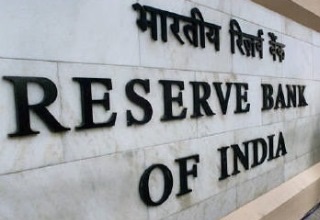RBI releases guidelines for licensing of payments banks
Updated: Nov 28, 2014 01:39:18pm

“The objectives of setting up of payments banks will be to further financial inclusion by providing small savings accounts and payments/remittance services to migrant labour workforce, low income households, small businesses, other unorganised sector entities and other users,” the RBI said in a release yesterday.
The guidelines come as a follow up of the Finance Minister’s announcement in the Union Budget 2014-15 when he said that “RBI will create a framework for licensing small banks and other differentiated banks. Differentiated banks serving niche interests, local area banks, payment banks etc. are contemplated to meet credit and remittance needs of small businesses, unorganized sector, low income households, farmers and migrant work force.”
Accordingly, in July 2014, the RBI had formulated and released for public comments draft guidelines for licensing of payment banks in the private sector. The guidelines issued now are based on feedback receive, the apex bank said.
Who is eligible to set up payment banks? According to the central bank, existing non-bank Pre-paid Payment Instrument (PPI) issuers; and other entities such as individuals / professionals; Non-Banking Finance Companies (NBFCs), corporate Business Correspondents(BCs), mobile telephone companies, super-market chains, companies, real sector cooperatives; that are owned and controlled by residents; and public sector entities may apply to set up payments banks.
Further, a promoter/promoter group can have a joint venture with an existing scheduled commercial bank to set up a payments bank. However, scheduled commercial bank can take equity stake in a payments bank to the extent permitted under Section 19 (2) of the Banking Regulation Act, 1949.
However, the promoter/promoter groups should be ‘fit and proper’ with a sound track record of professional experience or running their businesses for at least a period of five years in order to be eligible to promote payments banks.
Scope of activities of payment banks includes: acceptance of demand deposits. Payments bank will initially be restricted to holding a maximum balance of Rs 100,000 per individual customer; issuance of ATM/debit cards. Payments banks, however, cannot issue credit cards.
They can provide payments and remittance services through various channels; be business correspondent (BC) of another bank, subject to the Reserve Bank guidelines on BCs; and offer distribution of non-risk sharing simple financial products like mutual fund units and insurance products, etc.
With regard to deployment of funds, the payments bank cannot undertake lending activities. Further, apart from amounts maintained as Cash Reserve Ratio (CRR) with the Reserve Bank on its outside demand and time liabilities, it will be required to invest minimum 75 per cent of its "demand deposit balances" in Statutory Liquidity Ratio(SLR) eligible Government securities/treasury bills with maturity up to one year and hold maximum 25 per cent in current and time/fixed deposits with other scheduled commercial banks for operational purposes and liquidity management.
The minimum paid-up equity capital for payments banks will be Rs. 100 crore. In addition, the payments bank should have a leverage ratio of not less than 3 per cent, i.e., its outside liabilities should not exceed 33.33 times its net worth (paid-up capital and reserves).
The promoter's minimum initial contribution to the paid-up equity capital of such payments bank will at least be 40 per cent for the first five years from the commencement of its business.
The foreign shareholding in the payments bank would be as per the Foreign Direct Investment (FDI) policy for private sector banks as amended from time to time, it said. (KNN/ES)











